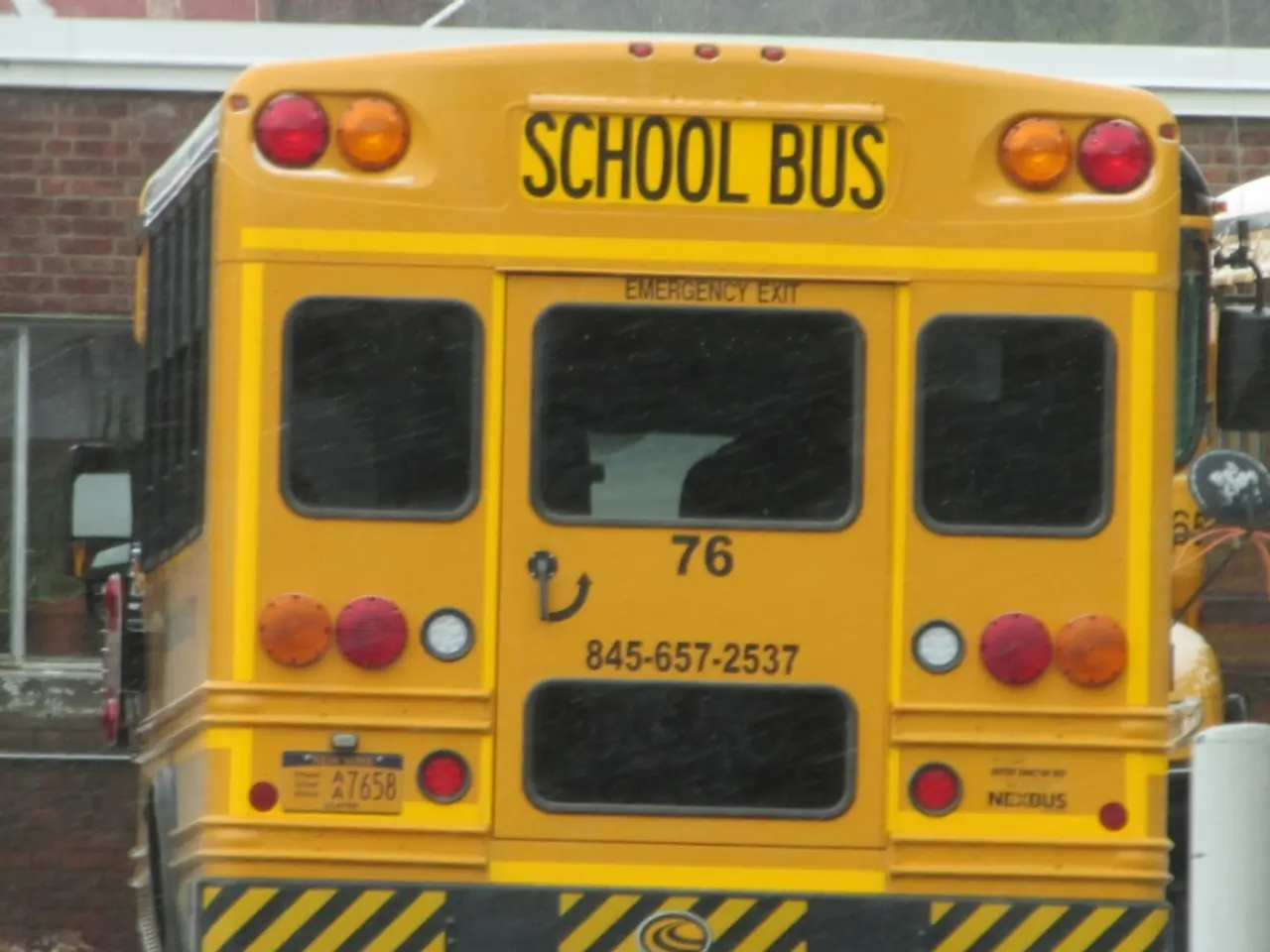Analysis of Educational Policies: Assessing Effectiveness and Pushing for Constructive Alterations
In the ever-evolving landscape of education, Texas finds itself at the forefront of significant policy shifts. The 2025 legislative session has brought about changes impacting curriculum, teacher pay, funding, discipline, and diversity policies, amongst others.
One of the most notable developments is the $8.5 billion increase in public school funding, a welcome boost after years of stagnation. This influx aims to bolster resources and improve education quality [1]. However, alongside this positive step, Texas has introduced a $1 billion voucher program, allowing families to use taxpayer funds for private school tuition [1][4]. This move, while potentially beneficial for some, may divert funds from public schools, impacting resource availability and quality in public education.
Teacher pay raises are structured to attract and retain educators based on experience and district size, with increases ranging from $2,500 to $8,000. This move aims to improve teacher recruitment and retention, factors closely tied to education effectiveness [1].
Texas has also banned Diversity, Equity, and Inclusion (DEI) initiatives in K-12 schools and mandated the display of the Ten Commandments, reflecting significant policy shifts in curriculum and school environment. These changes could have potential implications on inclusivity and student engagement [1].
New legislation (SB 569) overhauls virtual and hybrid learning policies. School systems can now offer more flexible models, supporting personalized learning and addressing staffing and credit recovery. These changes could enhance accessibility and instructional effectiveness, subject to state authorization for full-time programs [2].
Federal-level policy changes impact early education funding and accountability, including stricter college accountability tied to graduate earnings, which might influence preparation programs for early educators, thus indirectly affecting teacher training pipelines [3].
National trends highlight risks to public education quality due to voucher expansion, federal budget cuts, and underinvestment. These challenges could exacerbate inequalities and strain teacher and school resources if replicated or not addressed at the state or federal level [4][5].
In summary, Texas is pursuing a mix of expanded funding and innovative delivery (virtual/hybrid) models while introducing controversial policies on inclusivity and private school support. These changes could improve some aspects of educational quality, especially through funding and teaching workforce support but may also create challenges related to equity and resource distribution [1][2][4].
Continuous improvement is key in education, focusing on fostering learning, growth, and success for all individuals. Education policies should be regularly reviewed and revised, with proposed changes subject to careful analysis. Long-term effects on students, teachers, and the education ecosystem should be considered before implementing modifications.
As we navigate these changes, it is crucial to maintain a focus on fostering an inclusive, equitable, and high-quality education system. Collaboration with educators, parents, and other stakeholders is essential for a more effective and equitable education system. Advocating for positive policy changes is crucial, which can be done through discussions with policymakers, joining parent-teacher associations, or supporting educational reform organisations.
[1] Texas Tribune. (2021, June 18). Texas lawmakers approve $1 billion voucher program, $8.5 billion for public schools, and other major education changes. Retrieved from https://www.texastribune.org/2021/06/18/texas-education-budget-2022/
[2] Texas Education Agency. (2021, June 15). Senate Bill 569. Retrieved from https://tea.texas.gov/About_TEA/News_and_Multimedia/Press_Releases/2021/SB_569_Flexible_Learning_Options_Passed/
[3] National Education Association. (2021, March 11). The Biden-Harris Administration's Proposed Budget: A Game Changer for Public Education. Retrieved from https://www.nea.org/advocacy/budget-and-appropriations/biden-harris-administrations-proposed-budget-game-changer-public
[4] National Education Policy Center. (2020, October 12). Voucher Programs: The Facts. Retrieved from https://nepc.colorado.edu/resource/voucher-programs-facts
[5] Center on Budget and Policy Priorities. (2021, March 15). The Biden-Harris Administration's FY 2022 Education Budget Request. Retrieved from https://www.cbpp.org/research/education/the-biden-harris-administrations-fy-2022-education-budget-request
Read also:
- Overcoming Yielding Regulations Hurdles in Indian Export Sector for EU Markets
- Shaping production and consumption tendencies via cosmetic certification
- Center Stack Display Market Forecast to Reach USD 7.2 Million by 2034
- Transgender individuals' journey towards aligning their gender identity: Key aspects




